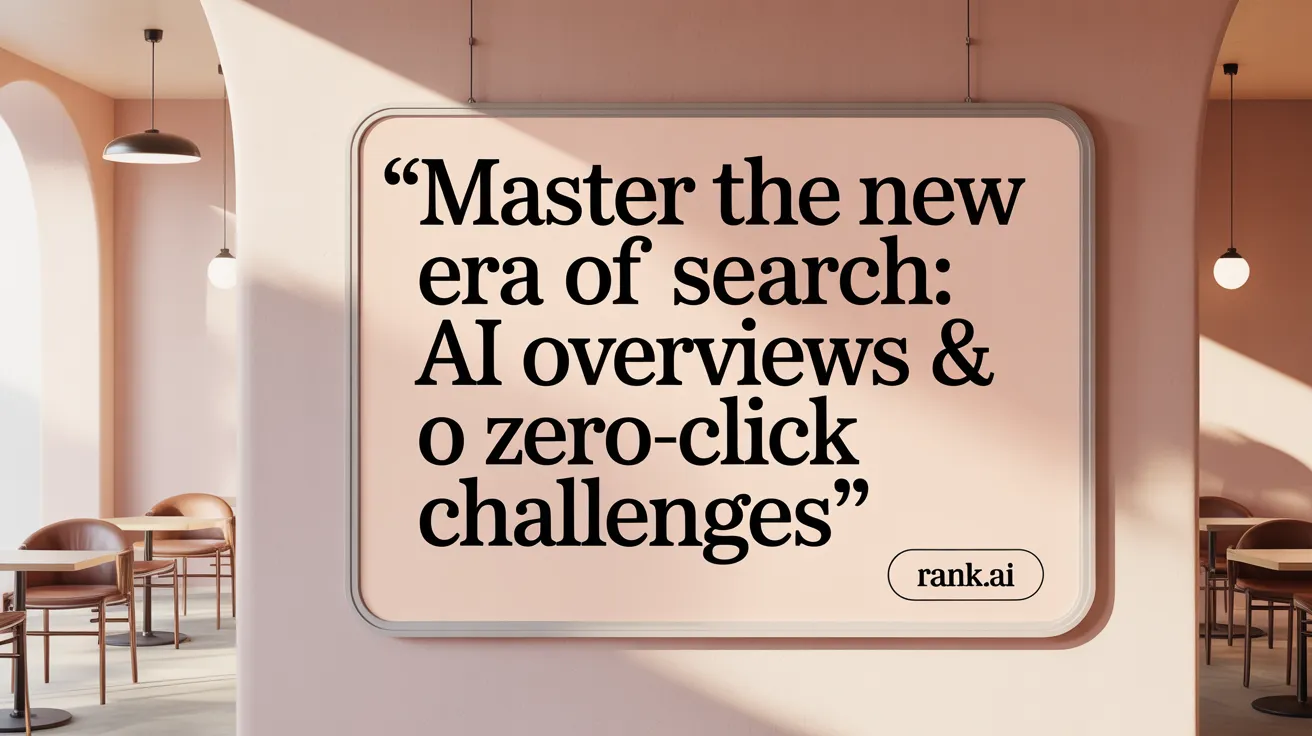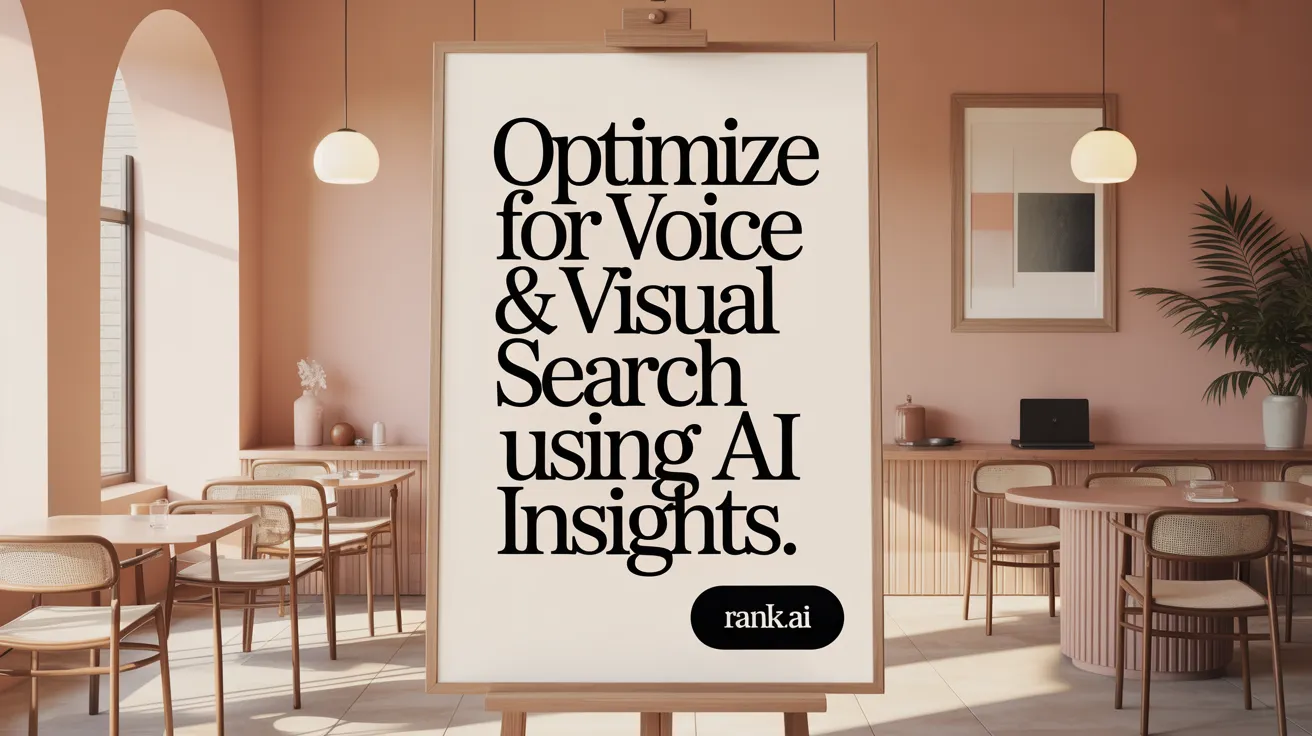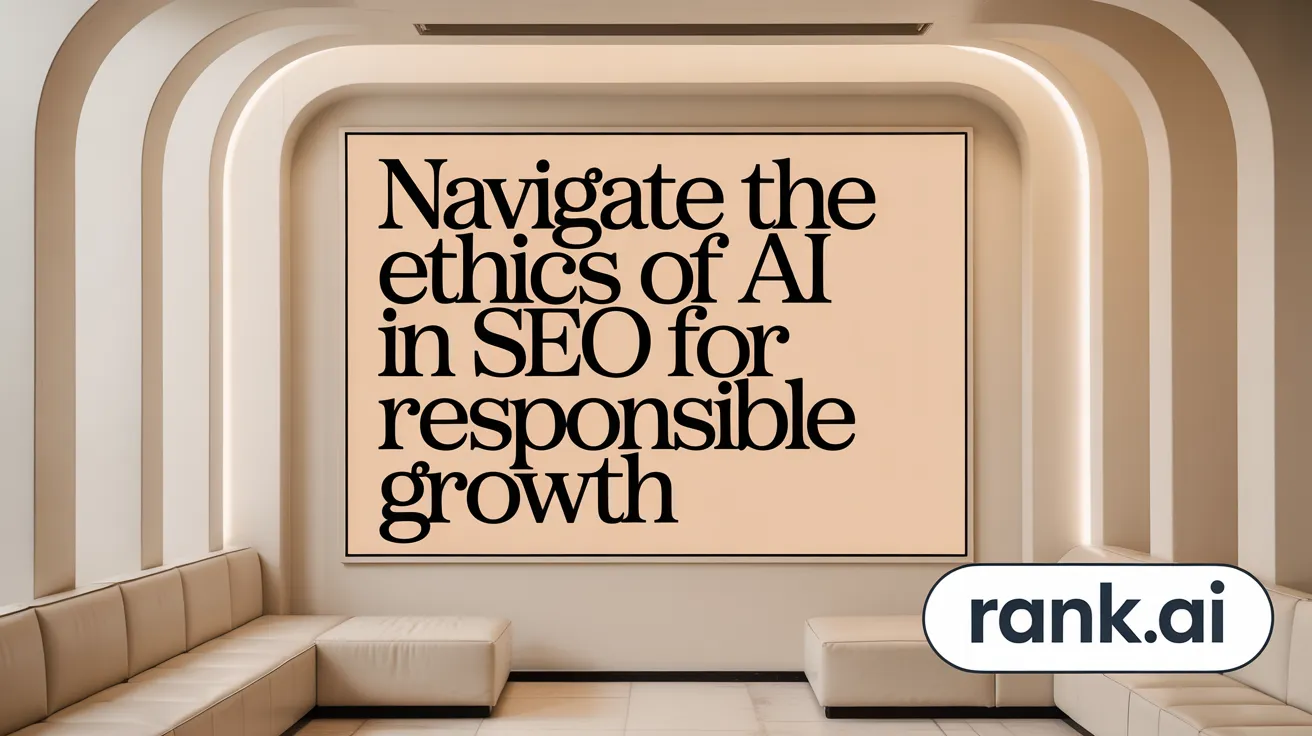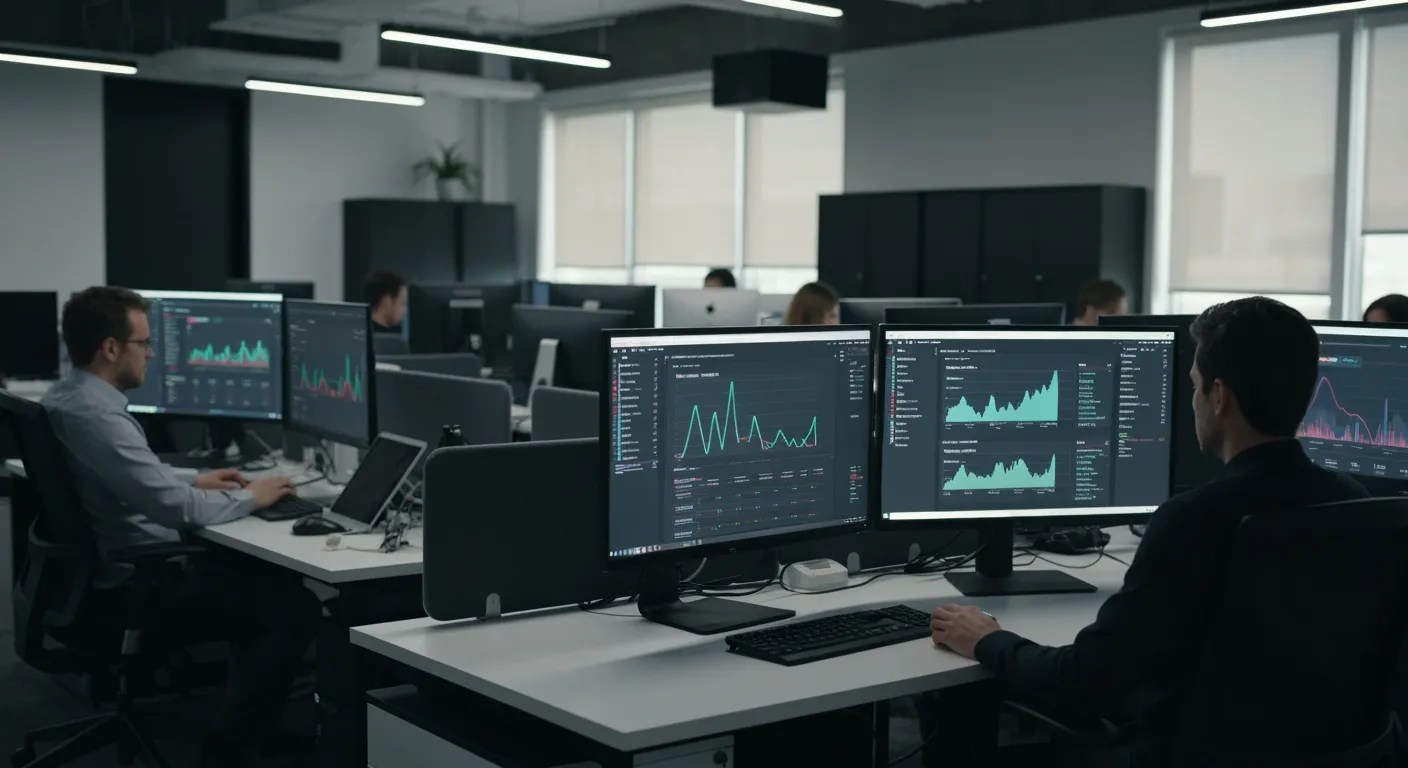How AI-Powered SEO is Changing the Game in 2024
Revolutionizing Search: The AI SEO Transformation of 2024

The Dawn of AI in SEO
In 2024, AI-powered SEO has shifted from a futuristic concept to a fundamental component of digital marketing strategies. With over 80% of digital marketers already integrating AI into their SEO workflows, the landscape of search optimization is evolving rapidly. This transformation is driven by advances in AI technologies, machine learning algorithms, and natural language processing, which enable businesses to understand user intent, automate complex tasks, and personalize content at unprecedented scale. This article explores the multifaceted ways AI is changing the SEO game in 2024, highlighting key trends, tools, strategies, and challenges marketers face in embracing this revolution.
The AI Surge in SEO Adoption
How prevalent is AI usage among digital marketers for SEO in 2024?
Over 80% of digital marketers are using AI in SEO strategies 2024, illustrating widespread acceptance and reliance on AI capabilities to optimize search performance. This strong adoption reflects a significant transformation in how SEO tasks are approached across industries.
Industry perspectives on AI integration
Within the SEO industry, AI integration is viewed as essential. Experts acknowledge that AI automates complex, data-intensive functions like keyword research with AI SEO tools, competitor analysis, and content optimization. According to multiple reports, around 67% to 86% of SEO professionals have adopted AI tools for SEO optimization, with many emphasizing increased productivity and efficiency gains. The emphasis is on combining AI power with human creativity and oversight to maintain content quality and relevancy.
Benefits driving AI adoption
Several clear advantages drive this surge:
- Automated keyword and trend analysis: AI quickly sifts through massive datasets to find high-value keywords and emerging trends.
- Content efficiency: AI assists in research, outlining, drafting, and optimization, freeing human experts to focus on strategy and quality.
- Enhanced technical SEO: Automated audits and real-time site optimization improve site health and user experience (Technical SEO automation with AI).
- Improved personalization and user intent understanding: AI-powered tools interpret Semantic search in SEO, to better target content to user needs.
- Competitive edge: Predictive analytics and AI-driven insights keep strategies agile against ever-changing algorithms (Predictive analytics for SEO).
This broad adoption signifies AI’s central role in modern SEO, transforming it into a faster, smarter discipline essential for digital marketing success in 2024 and beyond (AI transforming SEO).
Foundations of AI-Powered SEO: Understanding User Intent and Semantic Search
How has AI changed the understanding of search queries?
AI systems like Google’s RankBrain, BERT, and MUM have transformed SEO by moving away from traditional keyword matching toward a deeper semantic understanding of queries. These technologies process the intent behind a search, analyzing context, synonyms, and the nuances of language. This means search engines now interpret queries more like humans do, considering the full meaning and user purpose rather than isolated keywords.
Shift from keyword-based to intent-based SEO
The evolution from keyword-centric SEO to intent-focused optimization is one of the most significant changes in recent years. Instead of targeting specific words, modern SEO strategies target the searcher's underlying intent—whether informational, transactional, or navigational. This shift requires creating content that answers questions thoroughly and naturally, matching how users express their needs in conversation. Learn more about understanding search intent.
Role of algorithms like BERT, MUM, and RankBrain
RankBrain introduced machine learning to better understand search patterns and improve result relevance. BERT enhanced natural language processing (NLP) to grasp complex queries and context in a way that accounts for linguistic subtleties such as prepositions and modifiers. MUM (Multitask Unified Model) takes this even further by understanding queries across multiple languages and media types simultaneously, elevating AI’s ability to interpret complex, multifaceted search questions. For a deeper dive into these algorithms, see Google algorithm updates BERT and MUM.
Semantic search and NLP advancements
Semantic search leverages these AI advancements by focusing on the meaning and relationships within content rather than just keyword frequency. NLP improvements help dissect content structure, intent, and relevance, enabling search engines to deliver precise answers, featured snippets, and personalized results. This semantic emphasis encourages content creators to optimize for topics and concepts rather than isolated keywords. Explore how Natural language processing in SEO is evolving.
In essence, AI-powered SEO centers on understanding the human element behind searches—making content more useful, contextually relevant, and aligned with user needs. For further insights on this shift, see AI transforming SEO.
AI Tools Redefining SEO Workflows
What are the leading AI tools reshaping SEO strategies?
Innovative AI-powered platforms like Semrush AI Toolkit, Surfer SEO, Frase, Clearscope, MarketMuse, SE Ranking, and HighLevel’s AI SEO suite are revolutionizing how digital marketers approach SEO.
Key AI SEO tools and their capabilities
- Semrush AI Toolkit: Offers brand presence analysis across AI platforms, AI-powered keyword research, and actionable insights (10 AI SEO Tools Reviewed, SEO Tools for Content Optimization).
- Surfer SEO: Assists with keyword difficulty analysis, AI-generated article writing based on GPT-4, and optimization suggestions (Future of SEO and AI, SEO Strategy for 2024).
- Frase: Builds data-backed content briefs, competitor research, and converts outlines into drafts with SEO optimization in real time (Frase AI writing tools).
- Clearscope & MarketMuse: Provide comprehensive content optimization using top-ranking page data and semantic keyword suggestions (AI SEO tools for WordPress, AI transforming search engines).
- SE Ranking: Integrates AI tools for on-page SEO, keyword tracking, content marketing, and competitive analysis (10 AI SEO Tools Reviewed.
- HighLevel’s AI SEO Suite: Delivers keyword tracking, competitor analysis, technical site audits, and local SEO enhancements including heat maps and live website integration (AI in SEO strategies 2024).
Automation of SEO tasks
AI tools automate keyword research by analyzing large datasets to extract high-value and long-tail keywords aligned with user intent and current search trends (AI for SEO guide 2025, Leverage artificial intelligence to improve SEO). Technical SEO audits become more efficient through automated detection of issues like broken links and site speed bottlenecks (Traditional SEO in 2024, AI SEO integration with machine learning). Content optimization is accelerated, with AI suggesting meta tags, readability improvements, and semantic keyword placement (SEO Trends 2025, AI and SEO intersection). This streamlines workflows, enabling marketers to focus more on strategy and creative tasks while maintaining SEO accuracy and compliance with search engine guidelines (AI in SEO and Google Guidelines, AI transparency in digital marketing.
Automating Content Creation and Optimization While Maintaining Quality
How is AI shaping SEO content creation and quality control?
Generative AI models like ChatGPT, Gemini, and Claude have revolutionized the way SEO content is created and optimized. These advanced tools assist marketers by rapidly generating outlines, drafting articles, and suggesting keyword optimizations tailored for search intent and readability. This automation speeds up content production and helps marketers keep pace with evolving search engine algorithms and Google's Search Generative Experience (SGE).
Despite these efficiencies, human oversight remains crucial. AI-generated content often requires thorough review to ensure factual accuracy and avoid pitfalls such as duplicate content or overly generic text. Human editors add unique insights, expert opinions, and original analysis that AI cannot replicate, enhancing content depth and authority (Risks of AI in SEO).
Risks of AI-generated content and mitigation strategies
While AI boosts productivity, improper use can lead to issues like keyword stuffing, repetitive content, or errors from over-automation. These risks can harm search rankings and user experience. To mitigate this, content teams should adopt a balanced approach where AI handles research and drafting, but final revisions and fact-checking are performed by humans (Mitigating AI content risks).
By combining AI efficiency with human creativity and expertise, SEO teams can produce high-quality, engaging, and trustworthy content that performs well both with users and search engines in 2024 and beyond.
Enhancing Keyword Research and Trend Forecasting with AI
How does AI improve keyword research and SEO forecasting?
AI-powered SEO tools dramatically enhance keyword research by analyzing extensive datasets to identify high-value keywords that match user intent. Unlike traditional methods that rely heavily on manual analysis, AI systems employ natural language processing in SEO and machine learning to discern semantic patterns and intent behind queries. This allows marketers to uncover lucrative long-tail keywords that often lead to higher conversion rates.
Beyond discovery, AI excels in predictive modeling for keyword identification, allowing SEO professionals to forecast emerging search trends and anticipate algorithm updates. Such foresight transforms SEO planning from reactive responses to proactive strategies, optimizing content before changes impact rankings.
With AI-driven insights, marketers can optimize keyword targeting based on evolving user behavior and competitor movements. These capabilities not only improve keyword relevance but also enhance overall SEO performance by staying ahead of market dynamics.
In summary, AI empowers keyword research and SEO trend forecasting by combining deep data processing with advanced predictive modeling. This results in better-aligned content strategies, improved user engagement, and a significant competitive edge in search rankings. For more details, see AI in SEO strategies 2024 and AI revolutionizing SEO practices.
The Rise of AI-Driven Technical SEO Automation

In what ways does AI automate technical SEO?
AI has revolutionized technical SEO by automating complex and repetitive tasks that traditionally required manual effort. AI-powered tools conduct comprehensive site audits automatically, swiftly identifying issues such as broken links, duplicate content, and crawlability problems. This immediate detection enables faster remediation, ensuring optimal site health. For more information, see AI SEO Tool Comparison, AI for SEO guide 2025, and AI SEO integration with machine learning.
Beyond issue detection, AI assists in implementing schema markup, which is essential for helping search engines understand page content and improving rich snippet visibility. AI tools dynamically suggest and apply these structured data enhancements, streamlining a previously technical process. Refer to AI reshaping SEO and AI SEO Tool Comparison for details.
Speed optimization is another critical area where AI plays a pivotal role. By analyzing various factors impacting load times, especially on mobile devices, AI tools recommend or automate changes that improve page speed, directly influencing user experience and search engine rankings. More can be learned from SEO Trends for 2024 and Traditional SEO in 2024.
With mobile usability gaining importance in AI-driven search algorithms, AI also aids in optimizing website layouts for seamless mobile navigation and responsiveness. Insights on this topic are available at AI and SEO intersection and E-A-T (Expertise, Authoritativeness, Trustworthiness).
Overall, AI's automation of technical SEO tasks not only boosts efficiency but ensures websites meet modern search engine standards, maintaining visibility in a competitive digital landscape. For comprehensive guidance, consider exploring The New Age of SEO: How AI is Changing the Game and SEO.ai platform.
Personalization and User Experience Enhancement Through AI

How does AI personalize SEO content to improve user experience?
AI-driven SEO incorporates powerful analytics to examine visitor behavior and preferences comprehensively. By understanding unique user journeys and interests, AI delivers personalized content recommendations, such as tailored articles, videos, or products, which directly appeal to individual visitors. This personalization helps increase user engagement, drives higher conversion rates, and fosters loyalty.
Moreover, AI continuously analyzes key user engagement metrics like dwell time—the time spent on a page—and bounce rates, which indicate visitor retention. With these insights, AI tools can suggest real-time optimizations to website structure, navigation, and content strategy, ensuring visitors find relevant information swiftly and enjoy a seamless browsing experience.
By focusing on these aspects, AI not only improves the visitor's journey but also signals to search engines that the site is valuable and user-centric, positively impacting SEO rankings. Enhanced usability and user satisfaction become critical differentiators in AI-driven search environments, making personalization an essential strategy for SEO success.
Navigating New Search Formats: AI Overviews and Zero-Click Searches

What challenges do AI Overviews and zero-click searches present to SEO?
AI Overviews, introduced through Google's Search Generative Experience (SGE), have transformed search by delivering direct, AI-generated answers on results pages. This innovation leads to a growing trend of zero-click searches, where users find their answers without visiting websites — currently over 58% of Google searches end this way. This phenomenon significantly reduces traditional organic traffic and click-through rates, especially for informational queries. SEO practitioners now face the challenge of maintaining visibility when the traditional path of click-based engagement is diminished.
How are SEO strategies adjusting for featured snippets and AI Overviews?
To thrive amid these changes, SEO strategies have pivoted to optimize content for snippet formats and AI-generated summaries. Marketers are focusing on crafting comprehensive, well-structured content that AI systems can easily parse and highlight. This includes:
- Emphasizing long-tail and niche keywords suited for AI summaries.
- Structuring content with clear headers, bullet points, and FAQ sections.
- Creating high-quality, original information that AI can trust and cite.
Such adaptation helps content gain prominence in AI Overviews and featured snippets, preserving brand visibility despite lesser direct website traffic (see AI Overviews impact on SEO).
Why are authority and structured data crucial in this new landscape?
Authority signals like backlinks from reputable sites, expert insights, and consistent brand presence have become essential to capture AI’s attention and recommendation. Moreover, structured data (schema markup) supports AI in understanding and extracting key information from web pages, increasing the chances of content inclusion in AI answers. Leveraging authoritative, well-marked content ensures businesses remain influential in search results despite the shift towards direct AI responses. For further insights, refer to How AI is Reshaping SEO: Challenges, Opportunities, and Brand Strategies for 2025.
This evolving search environment demands a blend of nuanced content creation, technical SEO automation with AI, and brand authority cultivation to navigate AI-driven search effectively.
E-E-A-T and the Growing Emphasis on Content Authority
Experience, Expertise, Authoritativeness, and Trustworthiness
The concept of E-E-A-T—representing Experience, Expertise, Authoritativeness, and Trustworthiness—has become fundamental in modern SEO practices, especially in the age of AI. These criteria help search engines evaluate the credibility and reliability of online content, ensuring users receive information from sources that demonstrate genuine knowledge and competence (AI in SEO and Google Guidelines, E-E-A-T in SEO).
Content quality standards in AI-driven SEO
With AI-enhanced search engines like Google’s MUM and BERT focusing heavily on semantic understanding and user intent, content quality standards have evolved beyond mere keyword optimization. AI algorithms favor content that is thoroughly researched, clear, and provides value to users. This means producing original insights and comprehensive answers that AI models cannot easily replicate or summarize without losing nuance (Google algorithm updates BERT and MUM, AI content optimization.
Role of expert insights and brand reputation
Incorporating expert reviews and first-hand experience strengthens the perceived authority of content, which aligns well with AI's focus on trust signals. A strong brand reputation, demonstrated through authoritative backlinks and consistent mentions across reputable platforms, also boosts content’s standing. This is crucial since AI Overviews and generative search responses tend to source information from trusted and authoritative entities (AI Overviews impact on SEO, Building brand authority online).
Why is E-E-A-T more critical in AI-enhanced search environments?
E-E-A-T principles have gained prominence as AI algorithms prioritize content from credible, authoritative sources. Including first-hand experience and expert reviews strengthens content legitimacy, supporting higher rankings in AI-driven search results where trustworthiness and expertise are heavily weighted (AI and SEO intersection, Adapting to AI-driven SEO.
These shifts underscore the need for marketers and content creators to focus on building authority and trust, ensuring that their content not only meets technical SEO requirements but excels in delivering true expertise and user value (Human oversight in AI content, SEO best practices for AI Overviews.
The Integration of Voice and Visual Search Optimizations

How is AI reshaping SEO approaches for voice and visual search?
The rise of AI has brought a significant transformation to SEO strategies, especially in optimizing for voice search and visual search.
With voice search gaining momentum, users tend to speak in conversational, natural tones using longer, more specific queries. AI tools help SEO professionals adapt by focusing on conversational, long-tail keywords that mirror everyday speech patterns. This shift demands content that answers questions directly and clearly, improving relevance for voice assistants like Siri, Alexa, and Google Assistant.
Visual search advancements require websites to emphasize high-quality imagery. AI facilitates this by optimizing image metadata, including alt text and descriptive tags, making images more discoverable through AI-powered visual search engines. Metadata enhancements strengthen content context, enabling search engines to better understand and rank multimedia elements.
Overall, AI-powered analysis and recommendation systems provide insights into user behavior, helping marketers tailor content for these emerging search modalities. This approach expands SEO reach by capturing both spoken queries and visual intent, ensuring businesses remain visible in a multi-modal search landscape.
Local SEO and Hyper-Localization Empowered by AI
What role does AI play in enhancing local SEO strategies?
AI is pivotal in transforming local SEO by offering sophisticated tools that improve visibility and relevance in location-based searches. AI-powered platforms facilitate advanced keyword tracking tailored for local markets, enabling businesses to target highly specific search terms relevant to their geographic areas.
Google Business Profile optimization is crucial in this ecosystem. AI aids in managing and enhancing these profiles, ensuring accurate, up-to-date information and crafting compelling local descriptions. This optimization boosts prominence in Google's local packs, which are increasingly personalized.
Heat maps and real-time location data are employed through AI to visualize local search interactions and customer behavior patterns. These tools help businesses understand where their audience is concentrated and how they engage, enabling dynamic site optimization to improve local visibility.
Together, these AI-driven approaches enable hyper-local content creation and offer personalized search experiences to users, ensuring brands remain competitive in ever-evolving local search landscapes.
Ethical Considerations and Challenges in AI SEO Adoption

What ethical challenges accompany the use of AI in SEO?
AI adoption in SEO brings significant ethical challenges, including misinformation, duplicate content risks, and a general lack of originality. Without careful oversight, AI-generated content can unintentionally spread inaccuracies or produce uniform, uninspiring material. Over-automation may also result in errors like keyword stuffing or content that disregards user intent, potentially leading to penalties from search engines. Learn more about these Risks of AI in SEO and AI content optimization.
How can manipulative SEO practices be avoided?
Avoiding manipulative tactics is essential when using AI in SEO. This means steering clear of generating pure AI content without human review and not using AI for deceptive keyword stuffing or spamming backlinks. Transparency in content creation and adherence to search engine guidelines help ensure that AI tools are used to enhance user value, not to game algorithmic rankings. For practical advice, see Using AI for SEO Effectively and guidelines on ethical AI content use.
Why is balancing AI efficiency with human judgment important?
While AI technologies boost efficiency in keyword research, content generation, and site auditing, human involvement remains crucial. Marketers and SEO professionals must review and refine AI outputs to verify facts, inject creativity, and maintain authenticity. This human-AI partnership helps preserve content quality and trustworthiness while harnessing AI's power to meet evolving SEO demands. For insights on this collaboration, consult AI-assisted content creation and adapting SEO strategies for AI.
In conclusion, ethical AI SEO demands transparency, quality control, and responsible automation accompanied by vigilant human oversight to maximize benefits and uphold credibility in a rapidly changing digital landscape. Explore comprehensive guides on Adapting to AI-driven SEO and Ethical AI use in SEO to stay informed.
Preparing for the Future: Strategies to Stay Competitive in an AI-Driven SEO World
How can businesses adapt SEO strategies to remain effective amid AI changes?
Successful SEO in the AI era involves blending traditional methods with AI-driven automation and predictive analytics. Marketers must focus on user intent, content quality, and technical optimization while continuously monitoring algorithm shifts. Ongoing education and deliberate integration of AI tools empower businesses to maintain and enhance search visibility.
Adapting to evolving search algorithms
Search algorithms are increasingly AI-powered, emphasizing understanding the context and intent behind queries rather than simple keyword matching. Businesses need to optimize content for semantic relevance and utilize structured data like schema markup. Keeping pace with updates such as Google's Search Generative Experience (SGE) demands dynamic SEO strategies that prioritize high-quality, user-focused content.
Combining traditional SEO and AI techniques
Integrating traditional SEO practices — such as manual keyword research, backlinks, and content authority — with AI-driven tools enables more efficient workflows and data-driven decisions. AI aids in automating repetitive tasks like keyword clustering, technical audits, and content optimization, while human insight ensures originality, accuracy, and brand authenticity.
Importance of continual learning and tool evaluation
The AI SEO landscape evolves rapidly, requiring marketers to stay informed about new tools and algorithm changes. Regularly assessing AI SEO platforms for functionality, reliability, and alignment with ethical standards is vital. Investing time in upskilling and maintaining human oversight ensures AI becomes a strategic asset rather than a risk.
By strategically combining human expertise with AI capabilities, businesses can future-proof their SEO and thrive amid continuous transformation.
Embracing the AI-SEO Revolution
AI-powered SEO is no longer optional but essential for digital marketing success in 2024. As search engines evolve to understand context, intent, and personalized user data through advanced AI algorithms, marketers must leverage intelligent tools to stay ahead. While AI streamlines operations and provides powerful insights, human expertise remains irreplaceable in guiding strategy, ensuring content quality, and maintaining ethical standards. The road ahead demands agile adaptation, balancing innovation with authenticity, as the game-changing impact of AI on SEO continues to unfold and reshape the digital landscape.
Table of contents
Recent articles
Fresh insights on AI and SEO to help you stay ahead of the curve.


Ready to Improve
Your Rankings?
Use our free tools to get instant insights into your SEO performance and discover opportunities to rank higher




